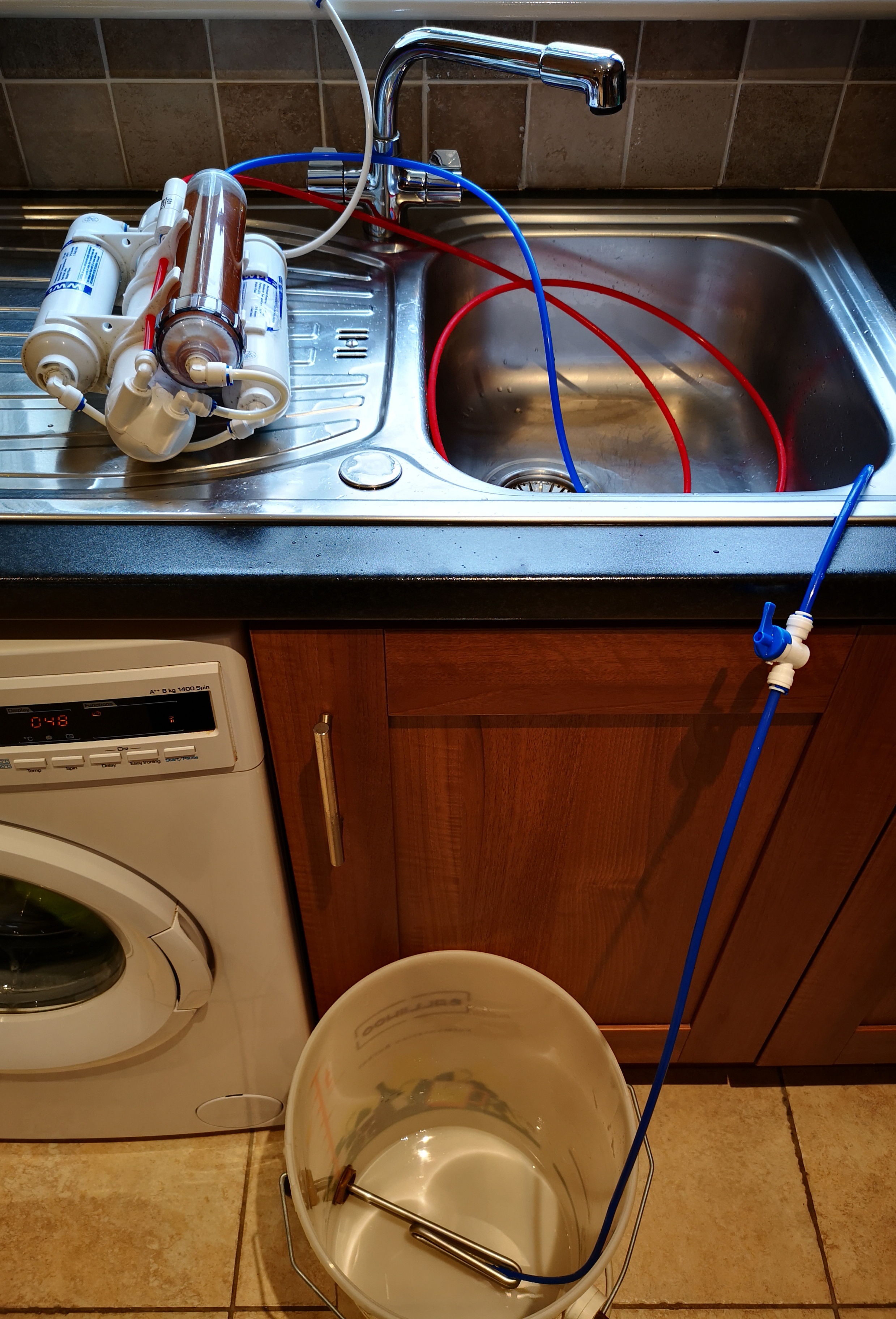strange-steve
Quantum Brewer
- Joined
- Apr 8, 2014
- Messages
- 6,027
- Reaction score
- 5,805
I get about 10L/hr connected to the mains. As for bacteria, I'm far from an expert on RO systems so I don't really know but what you're saying sounds right. I don't use mine for drinking water though, and bacteria isn't really a problem for AG brewing cos it gets boiled anyway. The only time I use the water "raw" is for making up Starsan.
I only use my system about once a month when I brew, so to keep the membranes wet I put a little valve on each of the pipes which keeps it full of water when not in use.
I only use my system about once a month when I brew, so to keep the membranes wet I put a little valve on each of the pipes which keeps it full of water when not in use.








































